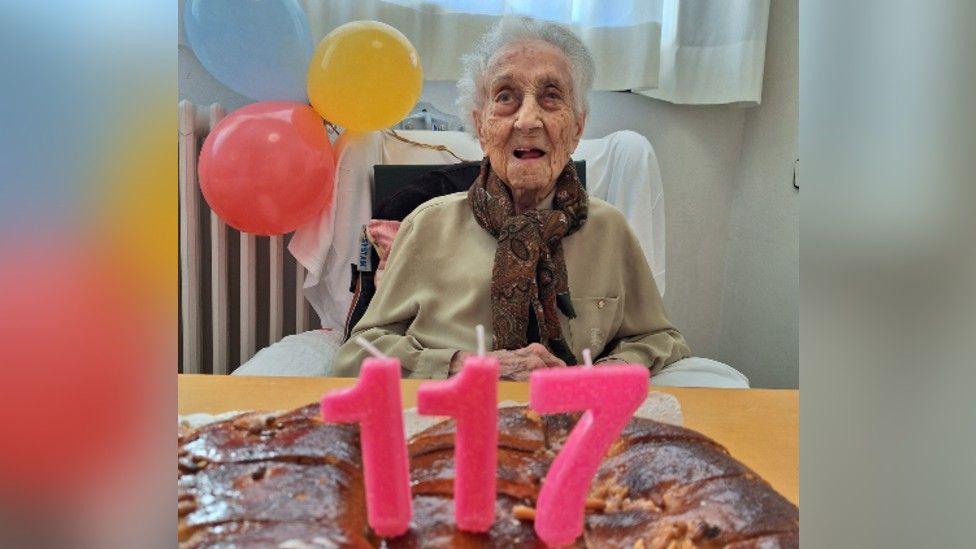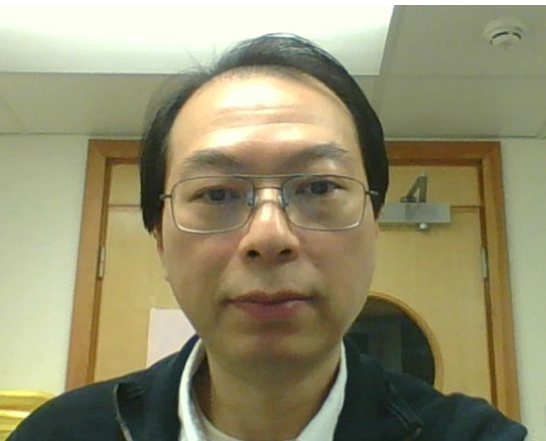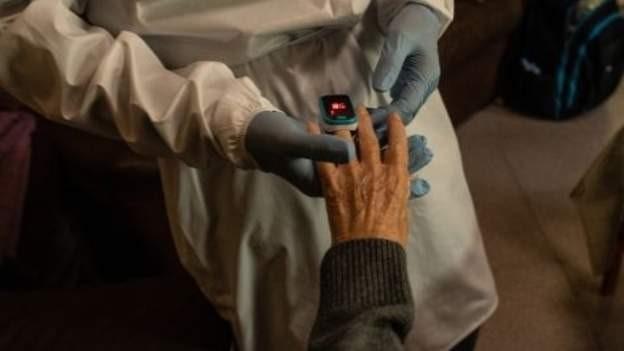Study unlocks ageing secrets of world's oldest woman

Maria Branyas was the world's oldest person from January 2023 to her death in August 2024
- Published
Scientists have discovered the secrets behind how a Spanish woman became the world's oldest person, until her death aged 117 last year.
Researchers found Maria Branyas's "exceptional" genes and "frugal" Mediterranean diet - made up of lots of vegetables, fruits, legumes and olive oil - were the most likely reasons she lived for so long.
The study collected samples of blood, saliva and stool from Ms Branyas when she was 116 years old to analyse her genetics.
Prof Manel Esteller, leader of the research team, noted that Ms Branyas did not drink alcohol or smoke and ate three servings of plain, sugar-free yoghurt every day.
The research, which involved academics from the University of Leicester, found Ms Branyas showed no sign of dementia and had a biological age 23 years younger than her chronological age.
Prof Esteller, of the Josep Carreras Leukaemia Research Institute in Barcelona, said: "She had an exceptional genome enriched in variants in genes that are associated with enhanced lifespan in other species, such as dogs, worms and flies.
"At the same time, she was devoid of gene variants associated with the risk of pathologies such as cancer, Alzheimer's and metabolic disorders."
'Frugal diet'
Prof Esteller said Ms Branyas had many gene variants that kept blood lipid levels low, which protected her heart and cognition.
Blood tests also revealed her lipid metabolism was among the most efficient ever reported.
Lipids are fat-like substances found in blood and body tissues which can cause high cholesterol levels.
"This was related to her frugal diet and genes that quickly metabolised damaging molecules," Prof Esteller added.
The team said it suspected her yoghurt consumption also helped continuously replenish her levels of a probiotic called bifidobacterium, which has multiple anti-ageing benefits including reducing inflammation.
Prof Esteller approached Prof Salvador Macip, from the division of molecular and cell biology at the University of Leicester, to contribute to the study.

Dr Thong Cao said it was "a privilege for Leicester to be part of this unique international study"
Dr Thong Cao, from the university's cardiovascular sciences department, worked on samples of plasma from Ms Branyas.
He said: "Our role was to use advanced mass spectrometry to study thousands of proteins circulating in the blood of this exceptionally long-lived individual.
"Proteins are the molecular 'workhorses' of the body and provide important clues about health and disease.
"By comparing her protein profile with those of other women across different age groups, we could see what was unique about her biology."
Analysis in Leicester uncovered Ms Branyas's blood proteins suggested "a very low level" of inflammation, the university said.
Data also showed she had enhanced detoxification and antioxidant responses that suggest her body had powerful mechanisms to counteract cellular stress.
Get in touch
Tell us which stories we should cover in Leicester
Follow BBC Leicester on Facebook, external, on X, external, or on Instagram, external. Send your story ideas to eastmidsnews@bbc.co.uk, external or via WhatsApp, external on 0808 100 2210.
Related topics
- Published12 May 2020

- Published3 February 2023
